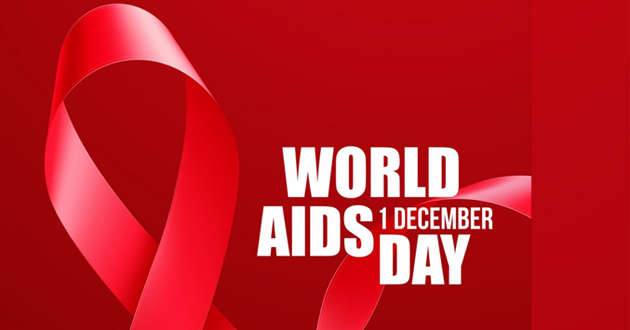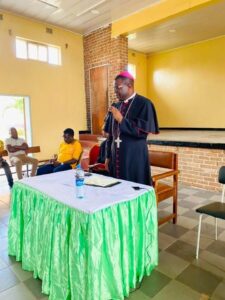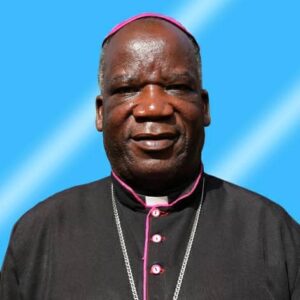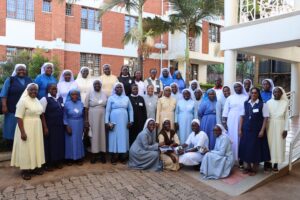KENYA: On World AIDS Day Jesuits Encourage Collaboration and Solidarity for Collective Success

Sr. Jecinter Antoinette Okoth, FSSA
On World AIDS Day commemorated internationally to raise awareness of the Acquired Immunodeficiency Syndrome (AIDS) pandemic caused by the spread of the Human Immunodeficiency Virus (HIV) infection and to mourn those who died from AIDS related illnesses, members of the Religious Order of the Society of Jesus, the Jesuits, have encouraged collaboration and solidarity so as to help in the fight against the disease.
“Solidarity with People Living with HIV (PLHIV) and other vulnerable people in Africa is not a sporadic act of generosity, but it is central to our mission and to our ministry,” President of the Jesuit Conference of Africa and Madagascar (JCAM) Fr. Agbonkhianmeghe E. Orobator said in a statement dated Tuesday, December 1.
He adds in reference to this year’s topic of reflection Global Solidarity, Shared Responsibility, “This year’s theme reminds us of our common responsibility towards one another… Solidarity, therefore, is a condition for our collective success.”
The occasion which is celebrated annually on December 1, since 1988 marking its 32nd year in 2020, was the first ever global health day.
The leadership of JCAM noted that this year’s commemoration occurs when the whole world is profoundly affected by the coronavirus pandemic which has disrupted health systems and severely impacted lives, in particular those who are already subjected to some underlying conditions including HIV/AIDS.
“Even though we are in the middle of new global public health emergency, it is critical not to let our guards down in the combat against HIV/AIDS, because the war is far from over. The epidemic is present and still spreading in communities,” the statement reads in part.
The statement highlights Pope Francis’ message who reminded the world of the importance of solidarity in the context of crisis and underscored the critical component of facing crisis together in order to emerge from it better and stronger saying that “we either do it together, all of us, in solidarity, or it is never done.”
Fr. Orobator noted on behalf of the Jesuits, “It means that in the face of obstacles, our strength comes from holding and allowing others to hold on us at every step of life.
The Jesuits and collaborators in Africa and Madagascar have promised to stand in solidarity with all the people living with HIV and to continue giving attention to the AIDS epidemic and its implications in the community.
The Universal Apostolic Preferences (UAPs) of the Jesuits said, “Enjoin all to walk with the excluded in society that is people who are vulnerable, weak, and marginalized by social and physical diseases, including HIV/AIDS.”
“The presence of African Jesuit AIDS Network (AJAN) since 2002, as the continental body coordinating Jesuit responses to HIV/AIDS, is a concrete testimony to our solidarity and shared responsibility,” the collective statement reads in part and adds further, “Across sub-Saharan Africa, AJAN centres work directly with vulnerable members of communities through provision of healthcare, support for livelihood, education for orphaned children and pastoral care.”
“Guided by the Scripture, the Church’s Teachings, the Pope’s leadership, and the UAPs, Jesuits, and collaborators have been and will continue responding to the HIV/AIDS crisis in solidarity with the most vulnerable,” they noted.
The leadership of JCAM narrated further that on the positive side, they acknowledge the tremendous achievements in the fight against the epidemic and appreciates the generosity, resilience, and tireless efforts by governments, international organizations, civil societies, religious organizations and communities.
“It is encouraging that a united global initiative has recorded gains in HIV testing and treatment with the result that 81% of people living with HIV know their status, and an estimated 25.4 million of the 38.0 million people living with HIV had access to antiretroviral therapy by the end of 2019, thus averting 12.1 million AIDS-related deaths since 2010,” the statement reads.


